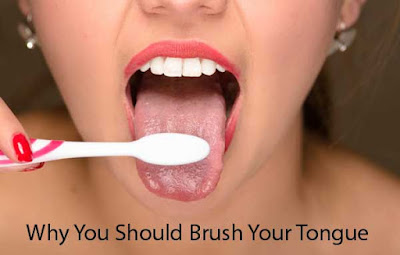You know brushing and flossing your teeth is important for your oral hygiene. You are supposed to brush and floss your teeth twice a day. Not many people know though that they should also be brushing their tongue. If you want to fight bad breath and truly optimize your dental health, you should be giving your tongue a good brushing each time you brush your teeth.
If you struggle with having bad breath despite brushing your teeth regularly and with the correct technique, the problem may very well be your tongue. Your tongue is a major contributor to halitosis.
What You Need To Know About Your Tongue
Although the tongue is a major feature of our mouths and integral part of our lives, it often goes overlooked. Most people do not give their tongue a second thought unless they burn it on hot food or accidentally bite it. Your tongue is a pretty elaborate group of muscles, and it is also a very nice home for a lot of different types of bacteria. If you look at your tongue, you will know that different foods and drinks cause it to change color. What is changing color on your tongue is the biofilm.
Bacteria On Your Tongue
Your tongue may not be at risk for getting cavities like your teeth, but it is a still a ripe target for bacteria - the same bacteria that causes cavities, plaque, and gingivitis. Your tongue is a great target for these bacteria to rest and then move on to your teeth. It accumulates in the spaces between your taste buds especially.
Your tongue is moist and textured, making it a great home for bacteria, which hides in the crevasses unless you make an effort to remove it. The best way to remove it is by brushing it with your toothbrush. You have likely noticed this buildup on your tongue, which is a biofilm. This biofilm can contribute to bad breath and tooth damage, even if you brush your teeth properly.
Rinsing Your Tongue
The buildup on your tongue being a biofilm makes rinsing your mouth out an ineffective way to remove the bacteria. Drinking water does not remove the bulk of the bacteria, and neither does mouthwash. A biofilm is a group of living microorganisms, which all stick together and also stick to your tongue.
Rinsing your mouth out only serves to remove a small portion of the bacteria or just the outermost cells of the biofilm. The lower cells in the spaces between your taste buds will remain, and new bacteria will grab onto these cells to reform the biofilm quite rapidly.
How To Properly Brush Your Tongue
You should be brushing your tongue each time you brush your teeth. Brushing your tongue is simple. All you need to do is gently brush the top surface back and forth, side to side, and then rinse your mouth out with water or with your preferred mouthwash to remove the biofilm you just brushed off.
There are also tongue scrapers available to buy, which you can use instead of your toothbrush. These tongue scrapers are available at most drug stores, and you simply glide them along the surface of your tongue to remove the layer of biofilm. Your regular toothbrush is just as effective, so it is fine to use it. You may also want to scrub your cheeks and the roof of your mouth to remove as much bacteria as possible.
If you find that cleaning your tongue causes you discomfort, this means you are likely doing it with too much force. The pressure needed to brush or scrape your tongue is not a lot. Your tongue is very delicate. It is inclined to become irritated and inflamed. If you accidentally brush your tongue too hard, you should forego brushing it for a day or two and then attempt to do so much more gently. Also, refrain from brushing your tongue if you have any wounds on it. Let the injury heal first before you resume the cleaning. If you have a very sensitive gag reflex, you need to clean the back of your tongue very slowly.
About the Author
Dr. Marichia Attalla is a leading Periodontist in Nassau County, Long Island NY. Learn about periodontal treatments and services by visiting her website.
Additional Resources

Comments
Post a Comment
Posts with links will not be approved